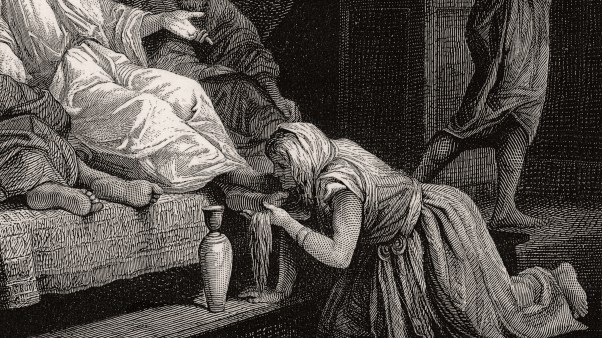
Another year has come and gone, bringing with it a long list of new Christian artists vying for the public’s attention. Like the contestants on American Idol, some are bound to remain obscure, while others seem to have what it takes to connect with audiences for the long haul. Listed alphabetically, here are twelve talented bands and solo artists who made their national debut in 2006 that we hope to see continue for many years to come.
 Heather Thompson
Heather Thompson
Circleslide
Uncommon Days (Centricity Records)
|
|
For a while, it looked like this national debut from Circleslide would never release. We’re glad it finally did, though we all agree that the band doesn’t exactly reinvent the wheel with their songwriting, which often treads into familiar worship-rock territory—think By the Tree or Ten Shekel Shirt. But Circleslide compensates with an appealingly polished modern rock sound, the soaring vocal of Gabe Martinez, anthemic choruses (“Get Up”), and some occasionally progressive arrangements (“Meteor”). No, they don’t really resemble The Choir, the ’80s alternative rock band from which they derive their name. But given time, Circleslide could well pick up where bands like PFR and Paul Colman Trio left off, continuing with vertically focused pop/rock that’s undeniably catchy.
Click here for the original review.View the artist page.
 In the "land and building wars" long fought within mainline denominations, the denomination usually wins. But this week, a South Carolina judge ruled that bishop Mark Lawrence and 36 South Carolina parishes had the right to leave The Episcopal Church in 2012 and take with them 0 million in property.
In the "land and building wars" long fought within mainline denominations, the denomination usually wins. But this week, a South Carolina judge ruled that bishop Mark Lawrence and 36 South Carolina parishes had the right to leave The Episcopal Church in 2012 and take with them 0 million in property.
“In all of TEC’s governing documents, no rule exists prohibiting the withdrawal of one of its member dioceses,” Circuit Court Judge Diane Goodstein wrote in her opinion. As such, she wrote, TEC defendants have no legal or other right to the plaintiffs’ “real, personal, and intellectual property.”
The ruling mirrored an Illinois decision, in which the Diocese of Quincy was allowed to keep its property and funds for the same reason: The national denomination didn’t have a policy that kept dioceses from withdrawing their membership. Last month, the Illinois Supreme Court refused to hear the denomination's appeal.
The Diocese of South Carolina (DSC) had long distanced itself from The Episcopal Church’s liberal stance on many theological issues, including same-sex relationships. After Mark Lawrence, the diocese’s bishop, vocally opposed the Episcopal Church’s 2009 resolution to allow gay ordination, two priests and 12 lay Episcopalians brought charges against him for “abandoning the Episcopal Church and renouncing its rules.” In 2012, the diocese broke away from the national church after it attempted to remove Lawrence.
Cathedral of St. Luke and St. Paul, CharlestonHowever, the ensuing legal fight was not over liberal or conservative theology, but over freedom, said Lawrence. “This has never been about exclusion,” he said. “Our churches, our diocese, are open to all. It’s about the freedom to practice and proclaim faith in Jesus Christ as it has been handed down to us.”
The lawsuit filed by the diocese requested that the court declare that TEC had no right to the diocese’s property or 36 parishes, many of which have been in the church tradition since the Revolutionary War era. In fact, the South Carolina diocese existed before the Episcopal Church and joined in its 1789 formation. The diocese left the national church briefly to affiliate with the Protestant Episcopal Church in the Confederate States of America during the Civil War, then rejoined in 1866.
“We are grateful that Judge Goodstein’s decision protects South Carolina churches from being added to the long list of properties that TEC seized then either abandoned or sold off,” said Jim Lewis, Canon to the Ordinary, in a DSC press release. “The decision protects our freedom to embrace the faith Anglicans have practiced for hundreds of years—and not the new theology being imposed on TEC’s dwindling membership.”
The Episcopal Church is expected to appeal the court decision, and the denomination’s South Carolina members are prepared for a “long legal process,” communications director Holly Behre told The State. The Wall Street Journal, Religion News Service, and The Post and Courier have also reported the ruling.
CT has examined whether legal victories by conservative breakaway churches are setting a precedent, and has noted the many hurdles facing the fractured Episcopal church.
DecembeRadio
DecembeRadio (Slanted Records)
|
|
If Third Day had continued in the direction of their harder-edged Conspiracy No. 5 from 1997, they might have ended up with something similar to this powerhouse national debut from DecembeRadio. With so many of today’s bands trying to develop a fresh rock sound based on grunge, emo, punk, and hardcore, it’s nice to finally find one firmly rooted in the classic Southern rock of Lynyrd Skynyrd and The Black Crowes, not to mention the pop-metal of Foreigner, Kansas, and Petra. In doing so, DecembeRadio provides something old-yet-new for today’s oft neglected 30-to-40-something males raised on this stuff. The retro approach may prevent them from becoming superstars, but it’s still impressive enough to earn them a Grammy nomination already, and strong enough to keep them afloat with a devoted following.
Click here for the original review.View the artist page.
 Courtesy of Diocese of South Carolina
Courtesy of Diocese of South Carolina
Edison Glass
A Burn or a Shiver (Credential Recordings)
|
|
A natural inclusion since A Burn or a Shiver made our list for the Best Albums of 2006. There are plenty of sound-alike comparisons here—Lovedrug, Denison Marrs, House of Heroes, and Sleeping at Last to name a few. But as far as post-emo and indie rock goes, Edison Glass is way ahead of the pack, improving upon what’s worked well for others in the last five years. They’re progressive and powerful, yet still melodic, plus it’s nice to hear a band that’s intentional and artful with their Christian beliefs rather than vague and general. Edison Glass is more proof that faith and creativity can co-exist comfortably in modern rock. We’re all too curious to hear what’s next from these guys.
Click here for the original review.View the artist page.

Update (Feb. 8): Lecrae's collaboration with For King & Country, "Messengers," won the Grammy Award for Best Contemporary Christian Music Performance/Song. He attended Sunday night's show with a very special date, his mother.
In his acceptance speech (video below), the triple-nominee said, "You can't celebrate gifts without celebrating the giver of all gifts, so I want to celebrate Jesus."
https://www.youtube.com/watch?v=ektwGF68eFY
——
Throughout his career, Lecrae has resisted the label of Christian rapper, instead considering himself “a rapper who happens to be Christian.” Following his success in 2014, when he dominated the Gospel rankings, the music industry may finally be changing the way they view Lecrae and other Christian hip-hop stars.
After his album Anomaly rose to No. 1 in the country, Atlanta-based Lecrae scored his first Grammy nomination in the rap category. He's up against Eminem, Drake, Childish Gambino, and Kendrick Lamar for best rap performance.
Previously nominated for best rock Gospel album in 2011 and the winner of best Gospel album in 2013, the 35-year-old tweeted that he was honored to be recognized in the rap category for “All I Need Is You,” a song about his wife. (Lecrae, who will attend Sunday's award show, is also nominated for best contemporary Christian music performance/song for his song “Messengers,” featuring the Christian band For King & Country, and for best Gospel performance/song for his collaboration on Erica Campbell’s song “Help.”)
Another Christian artist scoring mainstream recognition at the Grammys is R&B singer Mali Music, who joins Beyoncé, Chris Brown, Pharrell Williams, and Jhene Aiko as the nominees for best urban contemporary album.
This year also brings changes to the Billboard chart rankings, inspired in part by Lecrae’s popularity. Billboard announced:
2014 is the final year that most Christian rap/hip-hop songs and albums, like Lecrae's releases, will be broadly eligible for Billboard's Gospel charts. After soliciting feedback from the industry throughout the year, Billboard has discontinued categorizing most Christian rap and hip-hop titles for our Gospel Albums, Gospel Digital Songs, Hot Gospel Songs and Gospel Streaming charts.
Last year, Billboard crowned Lecrae with four Gospel accolades: “No. 1 Gospel Artist for the year, the top Hot Gospel Songs Artist, the No. 1 Gospel Albums Artist, and the No. 1 Gospel Digital Songs Artist.” Anomaly—released in September—was the album to reach the top spot on both the Gospel and Billboard 200 charts.
Since 1995, artists like Lecrae have qualified for both Christian and Gospel charts, noted Billboard in announcing the change. Now, Christian rap and hip-hop titles will be categorized on the Christian charts, with exceptions made for songs with Gospel style, collaborations, or other factors.
Reach Records, the label founded by Lecrae, supports the change. Others suggest that offering Christian hip-hop artists their own chart would be a better solution to their recent takeover of the Gospel charts.
"'Christian' and 'gospel' are not musical genres, rather labels that let a consumer know that the content in the lyrics are Christian-based," wrote industry expert Chad Horton, co-founder of the Christian site Rapzilla. "Christian hip-hop is its own subgenre, which now often outsells most top-selling gospel and Christian titles because it’s finally getting the visibility that it’s fought for all of these years."
Lecrae performed twice from his hit album on The Tonight Show with Jimmy Fallon, making him the first Christian rapper to appear on late-night network TV.
Christian fans celebrate Lecrae’s willingness to address social issues in his music, including fatherlessness, marriage, immigration, and faith. “Good, Bad, Ugly,” a song from his new album, brings up his regret over an early girlfriend having an abortion, which he discussed last month with John Piper.
In CT’s cover story on the genre, Southern Baptist leader Russell Moore wrote, “I think Christian hip-hop is more than just the latest attempt to slap a Jesus fish on the bumper of a pop-culture fad. Hip-hop is reminding the church about the reality of sin and grace—and returning the hip-hop community to its prophetic roots.”
CT has also spotlighted Lecrae in its feature on influential hip-hop theologians and preachers. Mali Music was listed among CT’s “33 Under 33, Continued” last year.
See the video for "All I Need Is You," Lecrae's nomination in the rap category, below:
https://www.youtube.com/watch?v=6iRTBh1gCjk
Family Force 5
Business Up Front / Party in the Back (Gotee Records)
|
|
Say this much for Family Force 5. Their debut is surely the wildest trip of the year, and they’ve come up with a sound of their own (“crunk rock” indeed). A little bit Beastie Boys, a little bit Linkin Park, with some Duran Duran and dc Talk thrown in because they can—it’s irresistibly fun stuff. Though energetic, raucous, and over-the-top (their concerts are wacky to say the least), the sound doesn’t make your ears bleed or bore you with the usual conventions. These guys are all about fun, and it comes across loud and clear. We only wish the lyrics offered some cleverly written faith expressions along the lines of Relient K, newsboys, and All Star United. When that happens, it’ll make the fact that they have a foot in both Christian and mainstream markets all the more meaningful.
Click here for the original review.View the artist page.

Update (Feb. 8): Lecrae's collaboration with For King & Country, "Messengers," won the Grammy Award for Best Contemporary Christian Music Performance/Song. He attended Sunday night's show with a very special date, his mother.
In his acceptance speech (video below), the triple-nominee said, "You can't celebrate gifts without celebrating the giver of all gifts, so I want to celebrate Jesus."
https://www.youtube.com/watch?v=ektwGF68eFY
——
Throughout his career, Lecrae has resisted the label of Christian rapper, instead considering himself “a rapper who happens to be Christian.” Following his success in 2014, when he dominated the Gospel rankings, the music industry may finally be changing the way they view Lecrae and other Christian hip-hop stars.
After his album Anomaly rose to No. 1 in the country, Atlanta-based Lecrae scored his first Grammy nomination in the rap category. He's up against Eminem, Drake, Childish Gambino, and Kendrick Lamar for best rap performance.
Previously nominated for best rock Gospel album in 2011 and the winner of best Gospel album in 2013, the 35-year-old tweeted that he was honored to be recognized in the rap category for “All I Need Is You,” a song about his wife. (Lecrae, who will attend Sunday's award show, is also nominated for best contemporary Christian music performance/song for his song “Messengers,” featuring the Christian band For King & Country, and for best Gospel performance/song for his collaboration on Erica Campbell’s song “Help.”)
Another Christian artist scoring mainstream recognition at the Grammys is R&B singer Mali Music, who joins Beyoncé, Chris Brown, Pharrell Williams, and Jhene Aiko as the nominees for best urban contemporary album.
This year also brings changes to the Billboard chart rankings, inspired in part by Lecrae’s popularity. Billboard announced:
2014 is the final year that most Christian rap/hip-hop songs and albums, like Lecrae's releases, will be broadly eligible for Billboard's Gospel charts. After soliciting feedback from the industry throughout the year, Billboard has discontinued categorizing most Christian rap and hip-hop titles for our Gospel Albums, Gospel Digital Songs, Hot Gospel Songs and Gospel Streaming charts.
Last year, Billboard crowned Lecrae with four Gospel accolades: “No. 1 Gospel Artist for the year, the top Hot Gospel Songs Artist, the No. 1 Gospel Albums Artist, and the No. 1 Gospel Digital Songs Artist.” Anomaly—released in September—was the album to reach the top spot on both the Gospel and Billboard 200 charts.
Since 1995, artists like Lecrae have qualified for both Christian and Gospel charts, noted Billboard in announcing the change. Now, Christian rap and hip-hop titles will be categorized on the Christian charts, with exceptions made for songs with Gospel style, collaborations, or other factors.
Reach Records, the label founded by Lecrae, supports the change. Others suggest that offering Christian hip-hop artists their own chart would be a better solution to their recent takeover of the Gospel charts.
"'Christian' and 'gospel' are not musical genres, rather labels that let a consumer know that the content in the lyrics are Christian-based," wrote industry expert Chad Horton, co-founder of the Christian site Rapzilla. "Christian hip-hop is its own subgenre, which now often outsells most top-selling gospel and Christian titles because it’s finally getting the visibility that it’s fought for all of these years."
Lecrae performed twice from his hit album on The Tonight Show with Jimmy Fallon, making him the first Christian rapper to appear on late-night network TV.
Christian fans celebrate Lecrae’s willingness to address social issues in his music, including fatherlessness, marriage, immigration, and faith. “Good, Bad, Ugly,” a song from his new album, brings up his regret over an early girlfriend having an abortion, which he discussed last month with John Piper.
In CT’s cover story on the genre, Southern Baptist leader Russell Moore wrote, “I think Christian hip-hop is more than just the latest attempt to slap a Jesus fish on the bumper of a pop-culture fad. Hip-hop is reminding the church about the reality of sin and grace—and returning the hip-hop community to its prophetic roots.”
CT has also spotlighted Lecrae in its feature on influential hip-hop theologians and preachers. Mali Music was listed among CT’s “33 Under 33, Continued” last year.
See the video for "All I Need Is You," Lecrae's nomination in the rap category, below:
https://www.youtube.com/watch?v=6iRTBh1gCjk
Dave Hollister
The Book of David: Vol. 1 The Transition (GospoCentric/Zomba)
|
|
There are plenty in gospel and R&B who will make a passing reference in their songs to some healing or hurt that God helped them through. And then you find an artist like Dave Hollister, who practically redefines “testimonial” by putting recent life struggles on full display with his first album. Here we don’t just find mention of his divorce—we also get the court appearance, the shameful aftermath, and the healing grace that comes only from God. A former member of ’90s R&B powerhouse Blackstreet, Hollister succeeds in making an album that’s anything but typical gospel/R&B. An openly honest and emotional road to redemption that’s relatable to saints and sinners alike, Hollister’s debut is quite possibly the best thing to happen to the genre since the music of Toné x and Kirk Franklin. Please tell us there’s a Volume 2.
Click here for the original review.
 WME Entertainment
WME Entertainment
Leeland
Sound of Melodies (Essential Records)
|
|
The buzz band of the year, and despite some over-hype, much of it is justified. There’s a more than ample supply of Brit pop/rock imitators in Christian music inspired by the likes of Coldplay, Keane, and the Doves. But to find one that tackles the sound with this much aplomb, and with their first album, and with a singer/songwriter still in his teens, well, that does make Leeland rather special and hard to ignore, doesn’t it? Adding fuel to the fire is the earnest passion and majesty with which Leeland Mooring and company render worshipful anthems for a new generation (“Tears of the Saints,” the title track, “Come to the Table”). There’s definitely room for improvement, but considering how young they are and the potential they demonstrate, that future promises to be all the more exciting.
Click here for the original review.View the artist page.

InterVarsity Christian Fellowship (IVCF) can set and enforce hiring practices based on its Christian faith, the Sixth Circuit Court of Appeals ruled on Thursday. Grounded heavily in the precedent set by the US Supreme Court’s significant Hosanna-Tabor decision in 2012, the verdict maintains that IVCF could legally fire an employee headed for divorce.
In 2013, Alyce Conlon, a former spiritual director at IVCF, filed a lawsuit challenging her firing. She was put on paid leave in 2011 after informing her supervisor she was considering divorce, and terminated that December for what she alleges was "failing to reconcile her marriage." (Her husband filed for divorce the following month.) Conlon claimed that two of her male colleagues in similar situations had not received the same treatment.
“Because IVCF is a religious organization and Conlon was a ministerial employee, IVCF’s decision to terminate her employment cannot be challenged under federal or state employment discrimination laws,” ruled the court. “It matters not whether the plaintiff is claiming a specific violation under Title VII or any other employment discrimination statute.” The court noted:
The parties point to no historical example in which the founding generation permitted any arm of the federal government—including the judiciary—to order a religious organization to accept or retain in a ministerial position a person whom the organization deemed unfit for ministry. To the contrary, the historical practice has always been that the government cannot dictate to a religious organization who its spiritual leaders would be.
In Hosanna-Tabor, the Supreme Court ruled that a Lutheran school teacher was a "minister" who could not sue the church that fired her in 2005, on the basis of the “ministerial exception,” which allows religious institutions to hire and fire employees according to their religious criteria. While the Sixth Circuit acknowledged that IVCF was not a church, it granted faith-based organizations the same rights.
“It is undisputed that InterVarsity Christian Fellowship is a Christian organization, whose purpose is to advance the understanding and practice of Christianity in colleges and universities. It is therefore a ‘religious group’ under Hosanna-Tabor,” the court stated.
Further, the Sixth Circuit ruled that while Conlon did not officially hold the title of minister, the organization did not need to specifically designate its employees as such in order to qualify for the exception.
Instead, “courts need only determine whether the wording of the title conveys a religious—as opposed to secular—meaning,” the court stated.
The court also ruled that contrary to Conlon’s argument that IVCF had waived its ministerial exception, the “exception is a structural limitation imposed on the government by the Religion Clauses, a limitation that can never be waived.”
Religion Clause highlights one judge's concern that the ruling is too broad:
Our decision today does not require us to decide whether a religious employer could enter into a judicially-enforceable employment contract with a ministerial employee not to fire that employee on certain grounds (such as pregnancy). Judicial enforcement of such a contract might unduly interfere with the independence of religious institutions, but barring religious institutions from offering such a legally binding guarantee might make it harder for some religious institutions to hire the people they want.
“These conclusions demonstrate profound respect for our constitutional structure and for the First Amendment,” wrote David French, an attorney for the American Center for Law and Justice, which represented IVCF in this case. “It is simply not the business of the government to determine who may or may not serve as a minister of the Gospel—or a minister of any other faith."
InterVarsity told CT:
InterVarsity is thankful that the Sixth Circuit Court’s decision in the case of Conlon v. InterVarsity Christian Fellowship affirms the distinctive legal identity of religious organizations consistently expressed in our country's history. InterVarsity also affirms its deep belief that both women and men should be treated fairly and justly. We have a long track record of valuing the role of women in Christian ministry. In this situation, InterVarsity believes it made every effort to resolve differences in perspective with appropriate grace and respect. In respect for all parties, as an organization we do not publically discuss the specifics of any personnel situations
Southern Baptist Theological Seminary president Al Mohler called the ruling a “major win this week on religious liberty.”
“One of the things that we as Christians need to think about when we see a headline like this is what the opposite might have meant,” he said. “If indeed, the court had found against InterVarsity Christian Fellowship and for the woman who sued the organization, it would have meant that a Christian organization can’t operate on its own Christian principles in terms of hiring those who will actually teach and lead those very organizations.“
Joe Carter examines the ruling for the Acton Institute.
In 2013, CT reported that, despite the Hosanna-Tabor precedent, teachers were still suing Christian schools over sex standards, including Dias v. Archdiocese of Cincinnati, where a lesbian was fired after undergoing artificial insemination. CT found that experts predicted similar lawsuits would continue to grow, but also that Christian schools were likely to continue their winning streak.
In 2011, World Vision also won a significant legal victory for parachurch ministries after its hiring practices were also challenged. The Supreme Court declined to hear World Vision’s hiring lawsuit, which allowed an August 2010 decision by the Ninth Circuit Court of Appeals to stand in favor of World Vision and against three employees who were fired after the organization concluded that they did not believe that Jesus Christ is fully God.
World Vision was a "religious organization" and therefore exempt from the rules on hiring practices that Congress set down in the 1964 Civil Rights Act, mainly because it is a nonprofit entity which self-identifies as religious, Ninth Circuit Judge Diarmuid F. O'Scannlain argued.
In the most in-depth study to date of gender parity in evangelical organizations, InterVarsity was found to be an exceptional advocate of women leaders compared to other organizations.
Liquid
Tales from the Badlands (Gotee Records)
|
|
Lately it seems like most R&B and hip-hop artists have succumbed to stale formulas and posturing. So what a pleasure it is to discover Liquid (aka Victor Oquendo), a singer/songwriter/producer who relies on genuine musicianship and heartfelt lyricism to create an eclectic-yet-cohesive effort that’s additionally steeped in jazz, pop, Latin, funk, and soul. Part Barry White, part Roots, it all comes together surprisingly well as he paints a poignant and diverse picture of hometown life growing up in the streets of Philadelphia, warts and all. The message? Inner-city neighborhoods are not beyond redemption, nor are gangs and drugs enough to personally separate us from the grace of Jesus Christ. Tales from the Badlands might just challenge your perceptions of the ghettos and the music associated with them. We’re also betting that Liquid still has plenty more stories to tell.
Click here for the original review.View the artist page.

InterVarsity Christian Fellowship (IVCF) can set and enforce hiring practices based on its Christian faith, the Sixth Circuit Court of Appeals ruled on Thursday. Grounded heavily in the precedent set by the US Supreme Court’s significant Hosanna-Tabor decision in 2012, the verdict maintains that IVCF could legally fire an employee headed for divorce.
In 2013, Alyce Conlon, a former spiritual director at IVCF, filed a lawsuit challenging her firing. She was put on paid leave in 2011 after informing her supervisor she was considering divorce, and terminated that December for what she alleges was "failing to reconcile her marriage." (Her husband filed for divorce the following month.) Conlon claimed that two of her male colleagues in similar situations had not received the same treatment.
“Because IVCF is a religious organization and Conlon was a ministerial employee, IVCF’s decision to terminate her employment cannot be challenged under federal or state employment discrimination laws,” ruled the court. “It matters not whether the plaintiff is claiming a specific violation under Title VII or any other employment discrimination statute.” The court noted:
The parties point to no historical example in which the founding generation permitted any arm of the federal government—including the judiciary—to order a religious organization to accept or retain in a ministerial position a person whom the organization deemed unfit for ministry. To the contrary, the historical practice has always been that the government cannot dictate to a religious organization who its spiritual leaders would be.
In Hosanna-Tabor, the Supreme Court ruled that a Lutheran school teacher was a "minister" who could not sue the church that fired her in 2005, on the basis of the “ministerial exception,” which allows religious institutions to hire and fire employees according to their religious criteria. While the Sixth Circuit acknowledged that IVCF was not a church, it granted faith-based organizations the same rights.
“It is undisputed that InterVarsity Christian Fellowship is a Christian organization, whose purpose is to advance the understanding and practice of Christianity in colleges and universities. It is therefore a ‘religious group’ under Hosanna-Tabor,” the court stated.
Further, the Sixth Circuit ruled that while Conlon did not officially hold the title of minister, the organization did not need to specifically designate its employees as such in order to qualify for the exception.
Instead, “courts need only determine whether the wording of the title conveys a religious—as opposed to secular—meaning,” the court stated.
The court also ruled that contrary to Conlon’s argument that IVCF had waived its ministerial exception, the “exception is a structural limitation imposed on the government by the Religion Clauses, a limitation that can never be waived.”
Religion Clause highlights one judge's concern that the ruling is too broad:
Our decision today does not require us to decide whether a religious employer could enter into a judicially-enforceable employment contract with a ministerial employee not to fire that employee on certain grounds (such as pregnancy). Judicial enforcement of such a contract might unduly interfere with the independence of religious institutions, but barring religious institutions from offering such a legally binding guarantee might make it harder for some religious institutions to hire the people they want.
“These conclusions demonstrate profound respect for our constitutional structure and for the First Amendment,” wrote David French, an attorney for the American Center for Law and Justice, which represented IVCF in this case. “It is simply not the business of the government to determine who may or may not serve as a minister of the Gospel—or a minister of any other faith."
InterVarsity told CT:
InterVarsity is thankful that the Sixth Circuit Court’s decision in the case of Conlon v. InterVarsity Christian Fellowship affirms the distinctive legal identity of religious organizations consistently expressed in our country's history. InterVarsity also affirms its deep belief that both women and men should be treated fairly and justly. We have a long track record of valuing the role of women in Christian ministry. In this situation, InterVarsity believes it made every effort to resolve differences in perspective with appropriate grace and respect. In respect for all parties, as an organization we do not publically discuss the specifics of any personnel situations
Southern Baptist Theological Seminary president Al Mohler called the ruling a “major win this week on religious liberty.”
“One of the things that we as Christians need to think about when we see a headline like this is what the opposite might have meant,” he said. “If indeed, the court had found against InterVarsity Christian Fellowship and for the woman who sued the organization, it would have meant that a Christian organization can’t operate on its own Christian principles in terms of hiring those who will actually teach and lead those very organizations.“
Joe Carter examines the ruling for the Acton Institute.
In 2013, CT reported that, despite the Hosanna-Tabor precedent, teachers were still suing Christian schools over sex standards, including Dias v. Archdiocese of Cincinnati, where a lesbian was fired after undergoing artificial insemination. CT found that experts predicted similar lawsuits would continue to grow, but also that Christian schools were likely to continue their winning streak.
In 2011, World Vision also won a significant legal victory for parachurch ministries after its hiring practices were also challenged. The Supreme Court declined to hear World Vision’s hiring lawsuit, which allowed an August 2010 decision by the Ninth Circuit Court of Appeals to stand in favor of World Vision and against three employees who were fired after the organization concluded that they did not believe that Jesus Christ is fully God.
World Vision was a "religious organization" and therefore exempt from the rules on hiring practices that Congress set down in the 1964 Civil Rights Act, mainly because it is a nonprofit entity which self-identifies as religious, Ninth Circuit Judge Diarmuid F. O'Scannlain argued.
In the most in-depth study to date of gender parity in evangelical organizations, InterVarsity was found to be an exceptional advocate of women leaders compared to other organizations.
Leigh Nash
Blue on Blue (One Son Records/Nettwerk)
|
|
The voice is nothing new, but the artist is. After fronting the now-defunct Sixpence None the Richer since the early ’90s, Leigh Nash goes solo with songs of her own. Turns out she’s pretty good at it too—as if there were any doubt. Less artsy than her work with Sixpence, Blue on Blue is a sweet album of love songs to Nash’s husband and son, more in step with the folk-pop of Sarah McLachlan and the country undertones of Patsy Cline. Though the songwriting just barely scratches the surface when it comes to spirituality, Nash uses her faith as a springboard from which to write about the complexities of relationships and the strength of unconditional love. With melodies that haunt the mind long after, not to mention that lovely lilting voice, Nash needn’t be blue about this first chapter in her newfound solo career.
Click here for the original review.View the artist page.
 InterVarsity Christian Fellowship
InterVarsity Christian Fellowship
NeedToBreathe
Daylight (Lava/Atlantic/Sparrow Records)
|
|
Another much hyped band from 2006, but NeedToBreathe has rightfully earned itself a devoted following for their dynamic live show, thanks to the charisma of lead singer Bear Rinehart and the skillful interplay among the band members. They also have broad generational reach with an accessible pop/rock sound that’s reminiscent of Daily Planet, The Afters, and a less rootsy Counting Crows. Though some of the songs can get monotonous as Daylight progresses, most of them grow on the ear with time; they seem to have a good grasp on hook-filled songcraft. But what’s especially admirable about this South Carolina band is their commitment to both Christian and mainstream markets, remaining grounded in their faith while making it relevant to the world around them.
Click here for the original review.View the artist page.

The renowned Princeton Seminary historian, Samuel Hugh Moffett, whose two-volume History of Christianity in Asia was completed when he was 89 years old, has died. He was 98.
“Sam Moffett had a distinguished career of teaching and scholarship in the service of the church on two continents,” Craig Barnes, president of Princeton Seminary, said. “He was a great encourager who touched the lives of thousands of students and was truly a global ambassador for the gospel.
"We lift up prayers of thanksgiving to God for his life and witness and prayers of condolence for his wife Eileen, their family, and their many friends and loved ones who are grieving his loss.” Moffett, who is survived by his wife Eileen, died Monday, Feb. 9, at the Windrows retirement community in New Jersey. A memorial service has not yet been scheduled.
Moffett published his first volume of his acclaimed History of Christianity in Asia in 1996, about 10 years after he retired. He published the second volume in 2005, at age 89. The two-volume magnum opus, which chronicles Asian Christianity from its origins to 1900, is 1,300 pages long. He also authored Whe'er the Sun (1953), The Christians of Korea (1962), The Biblical Background of Evangelicalism (1968).
In 1973, Moffett wrote “What Makes the Korean Church Grow” for Christianity Today. He said, “Bible training for the whole church, the cleansing exhilaration of the Spirit, and an emphasis on a personal sharing of the faith with others combined to set off a spiritual chain explosion in Korea…. In fifteen years from 1895, when suddenly the church in the North began to grow, to 1914, just after the [1907] great revival, the Protestant community in Korea increased from only 800 to more, than 167,000.”
In a 2006 interview with CT, Moffett said “the future of missions” is in Asia. But he also sounded a cautionary note since Asia’s population of 4.4 billion is no more than 8 percent Christian. “We’re not doing very well. Asia is more religious than any of the other continents.” Yet he said Asians perceive Christianity as an “alien” religion, even though “Jesus was born in Asia.”
In 2007, Moffett took part in a New Jersey celebration of the 100th anniversary of the famous 1907 Pyongyang revival. YouTube has a documentary, released in 2013, in which Moffett describes the revival’s achievements. But he said the Korean church came to realize that “30,000 baptisms don’t always mean 30,000 new Christians—it was in the revival that [new converts] discovered what their Christianity really meant.”
Moffett was born in Pyongyang, Korea, in 1916. His parents, Samuel Austin and Lucia Fish Moffett, were missionary pioneers. At that time, Pyongyang was referred to as the “Jerusalem of the East” due to the success of evangelism, church growth, and creation of educational institutions. His father launched the first seminary in Korea in the family home. At that time, the mission station that the elder Moffett ran was one of the largest in the world.
After graduating high school, Moffett enrolled in Wheaton College, graduating summa cum laude in 1938. Then in 1942, he received his BD from Princeton Seminary. In 1945, he was awarded a PhD in religion from Yale University. By this time, he had married Elizabeth Tarrant—they met at Wheaton.
Moving to China in 1947, Moffett served on the faculty at Yenching University in Beijing and later Nanking Theological Seminary. In 1951, Chinese communists expelled Moffett from the country after a show trial. He returned to Princeton Seminary from 1953 to 1955. During this time, his wife died of cancer. In 1955, Moffett moved to South Korea to serve as a missionary and he married Eileen Flower.
Presbyterian Theological Seminary (now Presbyterian University and Theological Seminary) in Seoul, Korea, asked Moffett to join the faculty in 1959, and he taught there until 1981. He served as dean of the graduate school from 1966 to 1970 and as co-president of the school from 1970 to 1981. He was also the first director of the influential Asian Center for Theological Studies and Mission.
After returning to the United States in 1981, Moffett was installed as the Henry Winters Luce Professor of Ecumenics and Mission at Princeton Seminary in New Jersey. He served until 1987.
One online observer said about Moffett, “Sam was a challenging professor, example in ministry and a beacon to all who care about communicating the love of Jesus to all people. There is no sense in saying “Rest in Peace”—Sam will rejoice in the presence of the Lord. The response to this great man’s passing should be to recommit to carrying out God’s mission in the world.”
Matt Papa
You Are Good (Spin 360)
|
|
A pleasant surprise for the year, Matt Papa is quickly establishing himself as a bright new talent in the modern worship genre, rising in the ranks of high school youth groups, college campuses, and church events before becoming an independent artist and now making his national debut. That’s even more impressive considering that he’s only been leading worship the last 8 years—since the age of 14. Papa writes melodies as memorable as the best in today’s worship, showing remarkable range that acknowledges the traditional alongside the modern. It’s all very catchy, but more importantly, practical to the average contemporary congregation. If you appreciate Chris Tomlin, David Crowder Band, and Jason Morant, there’s no reason you wouldn’t enjoy Matt Papa just as much.
Click here for the original review.

The renowned Princeton Seminary historian, Samuel Hugh Moffett, whose two-volume History of Christianity in Asia was completed when he was 89 years old, has died. He was 98.
“Sam Moffett had a distinguished career of teaching and scholarship in the service of the church on two continents,” Craig Barnes, president of Princeton Seminary, said. “He was a great encourager who touched the lives of thousands of students and was truly a global ambassador for the gospel.
"We lift up prayers of thanksgiving to God for his life and witness and prayers of condolence for his wife Eileen, their family, and their many friends and loved ones who are grieving his loss.” Moffett, who is survived by his wife Eileen, died Monday, Feb. 9, at the Windrows retirement community in New Jersey. A memorial service has not yet been scheduled.
Moffett published his first volume of his acclaimed History of Christianity in Asia in 1996, about 10 years after he retired. He published the second volume in 2005, at age 89. The two-volume magnum opus, which chronicles Asian Christianity from its origins to 1900, is 1,300 pages long. He also authored Whe'er the Sun (1953), The Christians of Korea (1962), The Biblical Background of Evangelicalism (1968).
In 1973, Moffett wrote “What Makes the Korean Church Grow” for Christianity Today. He said, “Bible training for the whole church, the cleansing exhilaration of the Spirit, and an emphasis on a personal sharing of the faith with others combined to set off a spiritual chain explosion in Korea…. In fifteen years from 1895, when suddenly the church in the North began to grow, to 1914, just after the [1907] great revival, the Protestant community in Korea increased from only 800 to more, than 167,000.”
In a 2006 interview with CT, Moffett said “the future of missions” is in Asia. But he also sounded a cautionary note since Asia’s population of 4.4 billion is no more than 8 percent Christian. “We’re not doing very well. Asia is more religious than any of the other continents.” Yet he said Asians perceive Christianity as an “alien” religion, even though “Jesus was born in Asia.”
In 2007, Moffett took part in a New Jersey celebration of the 100th anniversary of the famous 1907 Pyongyang revival. YouTube has a documentary, released in 2013, in which Moffett describes the revival’s achievements. But he said the Korean church came to realize that “30,000 baptisms don’t always mean 30,000 new Christians—it was in the revival that [new converts] discovered what their Christianity really meant.”
Moffett was born in Pyongyang, Korea, in 1916. His parents, Samuel Austin and Lucia Fish Moffett, were missionary pioneers. At that time, Pyongyang was referred to as the “Jerusalem of the East” due to the success of evangelism, church growth, and creation of educational institutions. His father launched the first seminary in Korea in the family home. At that time, the mission station that the elder Moffett ran was one of the largest in the world.
After graduating high school, Moffett enrolled in Wheaton College, graduating summa cum laude in 1938. Then in 1942, he received his BD from Princeton Seminary. In 1945, he was awarded a PhD in religion from Yale University. By this time, he had married Elizabeth Tarrant—they met at Wheaton.
Moving to China in 1947, Moffett served on the faculty at Yenching University in Beijing and later Nanking Theological Seminary. In 1951, Chinese communists expelled Moffett from the country after a show trial. He returned to Princeton Seminary from 1953 to 1955. During this time, his wife died of cancer. In 1955, Moffett moved to South Korea to serve as a missionary and he married Eileen Flower.
Presbyterian Theological Seminary (now Presbyterian University and Theological Seminary) in Seoul, Korea, asked Moffett to join the faculty in 1959, and he taught there until 1981. He served as dean of the graduate school from 1966 to 1970 and as co-president of the school from 1970 to 1981. He was also the first director of the influential Asian Center for Theological Studies and Mission.
After returning to the United States in 1981, Moffett was installed as the Henry Winters Luce Professor of Ecumenics and Mission at Princeton Seminary in New Jersey. He served until 1987.
One online observer said about Moffett, “Sam was a challenging professor, example in ministry and a beacon to all who care about communicating the love of Jesus to all people. There is no sense in saying “Rest in Peace”—Sam will rejoice in the presence of the Lord. The response to this great man’s passing should be to recommit to carrying out God’s mission in the world.”
Phil Wickham
Phil Wickham (Simple/INO Records)
|
|
Simple Records (started by Bart Millard and producer Pete Kipley) is two for two with new artists after introducing The Afters in 2005. This time, it’s Phil Wickham, and our reaction was unanimous: “Whoa, what a voice.” Somewhere between a croon and a wail, the 22-year-old sounds like a cross between Rufus Wainwright and Bono. That marvelous tenor is particularly striking in a worshipful context, capable of elevating even the most simplistic material into something far more grandiose. Similar in style to Leeland, not to mention other Brit-pop faves, Wickham’s self-titled debut has tons of atmosphere and is, at times, genuinely soul-stirring—a sort of musical prayer journal to God. Did we mention he plays most of the instruments on the album too?
Click here for the original review.View the artist page.
 Courtesy of Princeton Theological Seminary.
Courtesy of Princeton Theological Seminary.
Ayiesha Woods
Introducing Ayiesha Woods (Gotee Records)
|
|
Simply put, Ayiesha Woods is this year’s freshest breath of air. At last, a new female talent with strong songwriting chops that go beyond predictable pop/rock by comfortably bridging it with R&B, jazz, dancehall reggae, and neo-soul. With a silky and soulful rasp, plus some piano skills that bring Alicia Keys to mind, Woods is probably most similar to India.Arie and Nicole C. Mullen, but even more diverse—she can’t be neatly “boxed in,” and that’s exactly why we love her. The album is never boring and often fun, which makes the songs about God and his Word that much more meaningful and memorable. Offering a little something for everyone, and doing it all very well, this debut is not one to be missed.
Click here for the original review.View the artist page.
Interested in seeing other Best New Christian Artist alumni from years past? View our best-of lists archive by clicking here.
Copyright © Christian Music Today. Click for reprint information.










